February 28, 2014
|
|
9:00 - 9:20a.m.
|
Welcome and Opening Remarks
-
Speaker: Norman Chan, Chief Executive, Hong Kong Monetary
Authority
-
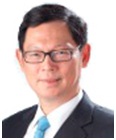 Norman Chan was appointed Chief Executive of the Hong Kong Monetary
Authority (HKMA) on 1 October 2009. Mr Chan joined the Hong Kong Government as an
Administrative Officer in 1976 and became Deputy Director (Monetary Management)
of the Office of the Exchange Fund in 1991. He was appointed an Executive Director
of the HKMA when it was established in 1993. From 1996 to 2005, Mr Chan served as
Deputy Chief Executive of the HKMA. During his 12 years with the HKMA, Mr Chan steered
a number of major financial policies and initiatives, including the development
of Hong Kong's financial infrastructure, the introduction of renminbi banking services
in Hong Kong and the financial co-operation among central banks in the Asian region.
He played a key role in the Government market operations in 1998 that helped maintain
the stability of Hong Kong's financial system.
Norman Chan was appointed Chief Executive of the Hong Kong Monetary
Authority (HKMA) on 1 October 2009. Mr Chan joined the Hong Kong Government as an
Administrative Officer in 1976 and became Deputy Director (Monetary Management)
of the Office of the Exchange Fund in 1991. He was appointed an Executive Director
of the HKMA when it was established in 1993. From 1996 to 2005, Mr Chan served as
Deputy Chief Executive of the HKMA. During his 12 years with the HKMA, Mr Chan steered
a number of major financial policies and initiatives, including the development
of Hong Kong's financial infrastructure, the introduction of renminbi banking services
in Hong Kong and the financial co-operation among central banks in the Asian region.
He played a key role in the Government market operations in 1998 that helped maintain
the stability of Hong Kong's financial system.
From December 2005 to June 2007, Mr Chan was Vice Chairman, Asia of Standard Chartered
Bank. Prior to rejoining the HKMA, Mr Chan was Director of the Chief Executive's
Office of the Hong Kong Special Administrative Region Government from July 2007
to July 2009. He was the Founding Chairman of the policy think tank, the Bauhinia
Foundation Research Centre established in 2006.
-
ZHU Min Deputy Managing Director, International Monetary
Fund
-
 Mr. ZHU Min assumed the position of Deputy Managing Director on July 26, 2011. Previously
he served as Special Advisor to the Managing Director of the International Monetary
Fund from May 3, 2010 to July 25, 2011.
Mr. ZHU Min assumed the position of Deputy Managing Director on July 26, 2011. Previously
he served as Special Advisor to the Managing Director of the International Monetary
Fund from May 3, 2010 to July 25, 2011.
Mr. Zhu, a native of China, was a Deputy Governor of the People’s Bank of China.
He was responsible for international affairs, policy research, and credit information.
Prior to his service at China’s central bank, he held various positions at the
Bank of China where he served as Group Executive Vice president, responsible for
finance and treasury, risk management, internal control, legal and compliance, and
strategy and research. Mr. Zhu also worked at the World Bank and taught economics
at both Johns Hopkins University and Fudan University.
Mr. Zhu received a Ph.D and an M.A. in economics from Johns Hopkins University,
an M.P.A. from the Woodrow Wilson School of Public and International Affairs at
Princeton University, and a B.A. in economics from Fudan University.
|
|
9:30-10:45
|
Panel I - View from the Deck: The Changing Role of Finance in Asia
Role of finance and key players; macroeconomic impacts of intermediation; shadow
banking; government involvement and financial inclusion; systemic importance; and
evolution going forward.
-
Moderator: Chikahisa SUMI, Assistant Director, Asia
and Pacific Department, IMF
-
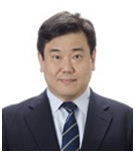 Chikahisa Sumiis currently Assistant Director of the Asia and Pacific
Department of the International Monetary Fund. He returned to the IMF in 2012 after
20 + years of public service in Japan, having worked in key positions in the areas
of macroeconomic policy coordination, management and budget, tax policies, public
finance, debt management, and financial services regulation, including G20 discussions
on international financial regulatory reform. Prior to returning to the IMF, Mr.
Sumi was Deputy Vice Minister of Finance for International Affairs of Japan.
Chikahisa Sumiis currently Assistant Director of the Asia and Pacific
Department of the International Monetary Fund. He returned to the IMF in 2012 after
20 + years of public service in Japan, having worked in key positions in the areas
of macroeconomic policy coordination, management and budget, tax policies, public
finance, debt management, and financial services regulation, including G20 discussions
on international financial regulatory reform. Prior to returning to the IMF, Mr.
Sumi was Deputy Vice Minister of Finance for International Affairs of Japan.
At the IMF, he co-heads the Financial Sector Group of the Department, and manages
an interdepartmental project on the Future of Asia’s Finance. He is Mission Chief
for Singapore and Fiji and has worked on Canada, Japan, Korea and Myanmar in his
youth.
Born in Osaka, Japan, Chikahisa holds LL.B. from the University of Tokyo and MBA
from Harvard University, where his friends started to call him Chuck. Married, one
daughter, and enjoys various types of fishing.
-
Speaker: HE Guangbei, Vice Chairman and the Chief
Executive of Bank of China (Hong Kong) Limited
-
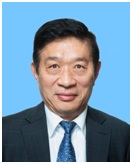 Mr. HE Guangbei, is the Vice Chairman and the Chief Executive of
Bank of China (Hong Kong) Limited, and also Chairman of Nanyang Commercial Bank
(China) Limited, Chiyu Banking Corporation Limited, BOC Life and BOCHK Charitable
Foundation. He is a Director of Hong Kong Interbank Clearing Limited, HKICL Services
Limited, and Hong Kong Note Printing Limited. He served as the Chairman of the Hong
Kong Association of Banks in 2005, 2008, 2011 and is the current Chairman for 2014;
the other public positions held include: member of 12th National Committee of the
Chinese People’s Political Consultative Conference, non-official member of Economic
Development Commission, member of the HKMA Exchange Fund Advisory Committee, member
of the Banking Advisory Committee, member of General Committee of Hong Kong General
Chamber of Commerce, member of Hong Kong-United States Business Council, member
of Advisory Committee of Qianhai Shenzhen-Hong Kong Modern Service Industry Corporation
Zone, and Council Member of the Trade Development Council.
Mr. HE Guangbei, is the Vice Chairman and the Chief Executive of
Bank of China (Hong Kong) Limited, and also Chairman of Nanyang Commercial Bank
(China) Limited, Chiyu Banking Corporation Limited, BOC Life and BOCHK Charitable
Foundation. He is a Director of Hong Kong Interbank Clearing Limited, HKICL Services
Limited, and Hong Kong Note Printing Limited. He served as the Chairman of the Hong
Kong Association of Banks in 2005, 2008, 2011 and is the current Chairman for 2014;
the other public positions held include: member of 12th National Committee of the
Chinese People’s Political Consultative Conference, non-official member of Economic
Development Commission, member of the HKMA Exchange Fund Advisory Committee, member
of the Banking Advisory Committee, member of General Committee of Hong Kong General
Chamber of Commerce, member of Hong Kong-United States Business Council, member
of Advisory Committee of Qianhai Shenzhen-Hong Kong Modern Service Industry Corporation
Zone, and Council Member of the Trade Development Council.
-
Hidekazu HORIKOSHI, Regional Head for Hong Kong, General
Manager,The Bank of Tokyo-Mistubishi UFJ
-
 Mr. Hidekazu HORIKOSHI, joined The Bank of Tokyo, Ltd. (now become
The Bank of Tokyo-Mitsubishi UFJ, Ltd. (BTMU) after several mergers in a decade
completed in 2006) in 1984 and has more than 29 years of experience in banking,
mainly lies in corporate and strategic planning development and global banking activities.
Mr. Hidekazu HORIKOSHI, joined The Bank of Tokyo, Ltd. (now become
The Bank of Tokyo-Mitsubishi UFJ, Ltd. (BTMU) after several mergers in a decade
completed in 2006) in 1984 and has more than 29 years of experience in banking,
mainly lies in corporate and strategic planning development and global banking activities.
Graduated from Hitotsubashi University with a Bachelor’s Degree in Economics in
1984 and McGill University in Montreal, Canada with Master of Business Administrations’
Degree in 1990.
Currently the Executive Officer, Regional Head for Hong Kong and General Manager,
Corporate Banking Office for Greater China of BTMU (Hong Kong Branch).
-
Frank Packer, Head of Economics and Financial Markets
for Asia & the Pacific, Bank for International Settlements
-
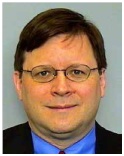 Frank Packer is the Head of Economics and Financial Markets at the Representative
Office for Asia and the Pacific, Bank for International Settlements (BIS). His responsibilities
include the oversight of economic research conducted by the BIS' Asian office, as
well as meetings and conferences organised by the BIS with central bank shareholders
in the region. Prior to his reassignment to the Asia Representative Office in 2009,
Frank was the head of Financial Markets in the Research and Policy Analysis group
of the Monetary and Economic Department at the BIS' head office in Basel, and was
also editor of the Bank’s Quarterly Review of International Banking and Financial
Market Developments. Prior to joining the BIS in 2003, Frank had worked for the
Federal Reserve Bank of New York and Nikko Citigroup in Tokyo. He has a Ph.D. in
finance and economics from Columbia University; an MBA from the University of Chicago,
and a BA in History and Economics from Harvard.
Frank Packer is the Head of Economics and Financial Markets at the Representative
Office for Asia and the Pacific, Bank for International Settlements (BIS). His responsibilities
include the oversight of economic research conducted by the BIS' Asian office, as
well as meetings and conferences organised by the BIS with central bank shareholders
in the region. Prior to his reassignment to the Asia Representative Office in 2009,
Frank was the head of Financial Markets in the Research and Policy Analysis group
of the Monetary and Economic Department at the BIS' head office in Basel, and was
also editor of the Bank’s Quarterly Review of International Banking and Financial
Market Developments. Prior to joining the BIS in 2003, Frank had worked for the
Federal Reserve Bank of New York and Nikko Citigroup in Tokyo. He has a Ph.D. in
finance and economics from Columbia University; an MBA from the University of Chicago,
and a BA in History and Economics from Harvard.
-
Rebecca Terner , Executive Director, Head of Policy
and Regulatory Affairs, Asia Securities Industry & Financial Markets Association
-
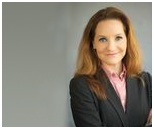 Rebecca Terner focuses primarily on global initiatives for the Asia Securities Industry
& Financial Markets Association (ASIFMA), including the global Legal Entity
Identifier (LEI), shadow banking and recovery and resolution planning. Her responsibilities
include providing Asian regulators, market supervisors, industry participants and
regional trade associations with regular updates on the global regulatory reform
agenda and its potential impacts on markets in Asia. In addition, she coordinates
ASIFMA initiatives and committees covering the ASEAN region and liaises regularly
with representatives of ASEAN+3, APEC-ABAC, the US Treasury, the Asian Bond Market
Forum Secretariat, the Asian Development Bank, Securities Market Practice Group
(SMPG), regulators, exchanges, financial market supervisors, and associations throughout
the Asia-Pacific region. Rebecca is an industry representative on the Financial
Stability Board's PSPG.
Rebecca Terner focuses primarily on global initiatives for the Asia Securities Industry
& Financial Markets Association (ASIFMA), including the global Legal Entity
Identifier (LEI), shadow banking and recovery and resolution planning. Her responsibilities
include providing Asian regulators, market supervisors, industry participants and
regional trade associations with regular updates on the global regulatory reform
agenda and its potential impacts on markets in Asia. In addition, she coordinates
ASIFMA initiatives and committees covering the ASEAN region and liaises regularly
with representatives of ASEAN+3, APEC-ABAC, the US Treasury, the Asian Bond Market
Forum Secretariat, the Asian Development Bank, Securities Market Practice Group
(SMPG), regulators, exchanges, financial market supervisors, and associations throughout
the Asia-Pacific region. Rebecca is an industry representative on the Financial
Stability Board's PSPG.
Prior to joining ASIFMA, Rebecca served as a New Directions Returnship Fellow at
Goldman Sachs and also has held policy roles in the US Congress, industry, and not-for-profit
organizations. Rebecca is currently serving as a Board Member and Board Secretary
of the Hong Kong based charity KELY and as a member of the Women in Finance Asia
(WiFA) steering committee.
Rebecca holds a Bachelor of Arts from Sarah Lawrence College and a Masters in Political
Administration from the George Washington University Graduate School of Political
Management and also completed the General Course at the London School of Economics
and Political Science.
|
|
11:00 - 12:15 p.m.
|
Panel II – High and Low Tides: Capital Flows in Asia
Main features of capital flows, and how to address risks. Drivers of flows and medium
term trends. Potential new sources, such as India and China, and prospects for regional
integration. Mobilizing domestic and foreign savings to support growth.
-
Moderator: Jerry Schiff, Deputy Director, Asia and
Pacific Department, IMF
-
 Mr. Jerald Schiff is the IMF’s Mission Chief to Japan. He joined the Fund in 1989
and worked in various departments, including the Western Hemisphere Department,
the European Department, and the Fiscal Affairs Department before moving to the
Asia and Pacific Department in 2004. He led missions to India and Korea during his
assignment in the Asia and Pacific Department. From 2009-11, he was a Senior Advisor
at the office of Managing Director (OMD). Mr. Schiff is a national of the United
States and received his A.B. at Cornell University and a M.S. and Ph.D. at University
of Wisconsin. Before joining the Fund, he has taught at the Tulane University as
Assistant Professor and worked in the U.S. Department of Treasury.
Mr. Jerald Schiff is the IMF’s Mission Chief to Japan. He joined the Fund in 1989
and worked in various departments, including the Western Hemisphere Department,
the European Department, and the Fiscal Affairs Department before moving to the
Asia and Pacific Department in 2004. He led missions to India and Korea during his
assignment in the Asia and Pacific Department. From 2009-11, he was a Senior Advisor
at the office of Managing Director (OMD). Mr. Schiff is a national of the United
States and received his A.B. at Cornell University and a M.S. and Ph.D. at University
of Wisconsin. Before joining the Fund, he has taught at the Tulane University as
Assistant Professor and worked in the U.S. Department of Treasury.
-
Speaker: Ratna Sahay, Deputy Director, Monetary and
Capital Markets Department, IMF
-
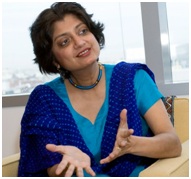 Ratna Sahay is Deputy Director of the Monetary and Capital Markets Department at
the International Monetary Fund (IMF). She is responsible for setting strategic
priorities for the department, leading key policy papers and projects, and coordinating
the work and resource management of the department. She has previously worked in
the Research, Finance, Asian, European, Middle East, and Western Hemisphere Departments
at the IMF, leading key analytical and policy projects as well as several missions
to emerging market countries.
Ratna Sahay is Deputy Director of the Monetary and Capital Markets Department at
the International Monetary Fund (IMF). She is responsible for setting strategic
priorities for the department, leading key policy papers and projects, and coordinating
the work and resource management of the department. She has previously worked in
the Research, Finance, Asian, European, Middle East, and Western Hemisphere Departments
at the IMF, leading key analytical and policy projects as well as several missions
to emerging market countries.
She has also led regional surveillance projects and missions in the Middle East
and Western Hemisphere Departments. She has served as Advisor to Stanley Fischer
(First Deputy Managing Director) and Michael Mussa and Kenneth Rogoff (both Economic
Counselors of the IMF).
Ms. Sahay has published widely in leading journals on financial market spillovers
and financial crises, inflation, economic growth, fiscal policy and debt sustainability,
and transition economies. She has taught at Delhi University, Columbia University
and New York University and holds a Ph. D in Economics from New York University,
New York.
-
LI Bo, People's Bank of China
-
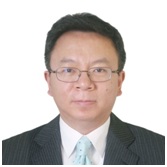 Dr. LI Bo joined the PBOC in 2004, working in the Legal and Regulation Department
before joining the Monetary Policy Department II in 2009. Prior to joining the PBOC,
Mr. Li was a practicing attorney with the New York law firm of Davis Polk &
Wardwell. Mr. Li holds a Ph.D. degree in economics from Stanford University and
a J.D. magna cum laude from Harvard Law School. He is a member of the Chinese and
New York Bar.
Dr. LI Bo joined the PBOC in 2004, working in the Legal and Regulation Department
before joining the Monetary Policy Department II in 2009. Prior to joining the PBOC,
Mr. Li was a practicing attorney with the New York law firm of Davis Polk &
Wardwell. Mr. Li holds a Ph.D. degree in economics from Stanford University and
a J.D. magna cum laude from Harvard Law School. He is a member of the Chinese and
New York Bar.
-
Kazuo Momma, Assistant Governor of the Bank of Japan
-
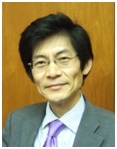 Mr. Kazuo Momma is the Assistant Governor of the Bank of Japan.
He received a B.A. in Economics from University of Tokyo, and a MBA from Wharton
School. He joined the Bank in 1981. He became Head of Policy Studies Division at
Policy Planning Office (present Monetary Affairs Department) in April 2000, and
in March 2003, Head of Economic Research Division at the Research and Statistics
Department. In July 2006, he was promoted to Deputy Director-General at the Financial
System and Bank Examination Department. He became Director-General of the Research
and Statistics Department in 2007 and Director-General of Monetary Affairs Department
in 2011. He has served as Executive Director since May 2012. On March 2013, he was
appointed Assistant Governor, responsible for the Bank's international affairs.
Mr. Kazuo Momma is the Assistant Governor of the Bank of Japan.
He received a B.A. in Economics from University of Tokyo, and a MBA from Wharton
School. He joined the Bank in 1981. He became Head of Policy Studies Division at
Policy Planning Office (present Monetary Affairs Department) in April 2000, and
in March 2003, Head of Economic Research Division at the Research and Statistics
Department. In July 2006, he was promoted to Deputy Director-General at the Financial
System and Bank Examination Department. He became Director-General of the Research
and Statistics Department in 2007 and Director-General of Monetary Affairs Department
in 2011. He has served as Executive Director since May 2012. On March 2013, he was
appointed Assistant Governor, responsible for the Bank's international affairs.
|
|
12:30 - 2:00 p.m.
|
Lunch
|
|
2:00 - 2:30 p.m.
|
-
Keynote speech: Jose Viñals, Director, Monetary and Capital Markets
Department, IMF
-
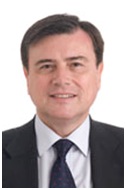 José Viñals is currently the Financial Counsellor and Director
of the Monetary and Capital Markets Department of the International Monetary Fund
(IMF). He represents the IMF at the Financial Stability Board. He holds a Bachelor's
degree in Economics from the University of Valencia; a Master’s degree in Economics
from the London School of Economics; and Master's and Doctoral (Ph.D.) degrees in
Economics from Harvard University. He is a former Faculty Member of the Economics
Department at Stanford University.
José Viñals is currently the Financial Counsellor and Director
of the Monetary and Capital Markets Department of the International Monetary Fund
(IMF). He represents the IMF at the Financial Stability Board. He holds a Bachelor's
degree in Economics from the University of Valencia; a Master’s degree in Economics
from the London School of Economics; and Master's and Doctoral (Ph.D.) degrees in
Economics from Harvard University. He is a former Faculty Member of the Economics
Department at Stanford University.
His professional career has been closely tied to the Central Bank of Spain, where
he served as Deputy Governor after holding successive positions as Head of Economic
Studies; Head of Economic, Monetary, and Financial Studies; and Director-General.
He has also played a role in international fora. He headed the team of economic
advisors to the Committee of Governors of European Union Central Banks and was a
member of: the Bank for International Settlements (BIS) Committee on the Global
Financial System; the European Central Bank Monetary Policy Committee; and the high-level
group appointed by the President of the European Commission to examine economic
challenges in the European Union. He was also a member of the European Union Economic
and Financial Committee and a Board Member of the Spanish Securities Authority,
the Comisión Nacional del Mercado de Valores.
Mr. Viñals served as Chairman of the Center for Monetary and Financial Studies
(CEMFI) in Spain; Chairman of the European Central Bank International Relations
Committee; and Chairman of Spain’s Deposit Guarantee Funds, the Fondo de GarantÃa
de Depósitos de Bancos, Cajas de Ahorros y Cooperativas del Crédito de España.
His awards include the Premio Rey Jaime I (King James I Prize) in Economics in 2001.
|
|
2:45-4:00 p.m.
|
Panel III - Changing Currents: Asia in the New Global Regulatory Regime
Regulatory and supervisory gaps; impact of Basel III; challenges in regulating and
supervising cross border financial intermediation; and challenges in moving toward
greater financial integration in ASEAN, drawing lessons from the Euro Area.
-
Moderator: Jose Viñals, Director, Monetary and Capital
Markets Department, IMF
-
 José Viñals is currently the Financial Counsellor and Director
of the Monetary and Capital Markets Department of the International Monetary Fund
(IMF). He represents the IMF at the Financial Stability Board. He holds a Bachelor's
degree in Economics from the University of Valencia; a Master’s degree in Economics
from the London School of Economics; and Master's and Doctoral (Ph.D.) degrees in
Economics from Harvard University. He is a former Faculty Member of the Economics
Department at Stanford University.
José Viñals is currently the Financial Counsellor and Director
of the Monetary and Capital Markets Department of the International Monetary Fund
(IMF). He represents the IMF at the Financial Stability Board. He holds a Bachelor's
degree in Economics from the University of Valencia; a Master’s degree in Economics
from the London School of Economics; and Master's and Doctoral (Ph.D.) degrees in
Economics from Harvard University. He is a former Faculty Member of the Economics
Department at Stanford University.
His professional career has been closely tied to the Central Bank of Spain, where
he served as Deputy Governor after holding successive positions as Head of Economic
Studies; Head of Economic, Monetary, and Financial Studies; and Director-General.
He has also played a role in international fora. He headed the team of economic
advisors to the Committee of Governors of European Union Central Banks and was a
member of: the Bank for International Settlements (BIS) Committee on the Global
Financial System; the European Central Bank Monetary Policy Committee; and the high-level
group appointed by the President of the European Commission to examine economic
challenges in the European Union. He was also a member of the European Union Economic
and Financial Committee and a Board Member of the Spanish Securities Authority,
the Comisión Nacional del Mercado de Valores.
Mr. Viñals served as Chairman of the Center for Monetary and Financial Studies
(CEMFI) in Spain; Chairman of the European Central Bank International Relations
Committee; and Chairman of Spain’s Deposit Guarantee Funds, the Fondo de GarantÃa
de Depósitos de Bancos, Cajas de Ahorros y Cooperativas del Crédito de España.
His awards include the Premio Rey Jaime I (King James I Prize) in Economics in 2001.
-
Speaker: Gilbert Kohnke, Chief Risk Officer, OCBC
Bank
-
 Mr. Gilbert Kohnke was appointed Executive Vice President and Head of Group Risk
Management in September 2005. As Chief Risk Officer, he covers the full spectrum
of risk, including Credit, Information Security, Liquidity, Market and Operational
risk management. Jointly reporting to both the Chief Executive Officer and the Board
Risk Management Committee of OCBC Bank, he has been leading the change in redefining
the risk management approaches used by OCBC Bank in a Basel II and post Global Financial
Crisis Basel III world. He has over 25 years of banking experience. Prior to joining
OCBC Bank, he was Head of Risk Management for Asia at Canadian Imperial Bank of
Commerce (CIBC), and subsequently, Head of European Portfolio Management of CIBC
based in London. He holds a Bachelor of Arts in Economics from the University of
Western Ontario, a Bachelor of Commerce in Accounting from the University of Windsor,
Ontario and a Master of Business Administration from the University of Hawaii. Age
55.
Mr. Gilbert Kohnke was appointed Executive Vice President and Head of Group Risk
Management in September 2005. As Chief Risk Officer, he covers the full spectrum
of risk, including Credit, Information Security, Liquidity, Market and Operational
risk management. Jointly reporting to both the Chief Executive Officer and the Board
Risk Management Committee of OCBC Bank, he has been leading the change in redefining
the risk management approaches used by OCBC Bank in a Basel II and post Global Financial
Crisis Basel III world. He has over 25 years of banking experience. Prior to joining
OCBC Bank, he was Head of Risk Management for Asia at Canadian Imperial Bank of
Commerce (CIBC), and subsequently, Head of European Portfolio Management of CIBC
based in London. He holds a Bachelor of Arts in Economics from the University of
Western Ontario, a Bachelor of Commerce in Accounting from the University of Windsor,
Ontario and a Master of Business Administration from the University of Hawaii. Age
55.
-
Kenji Okamura,Deputy Commissioner for Japan International
Affairs Financial Services Agency
-
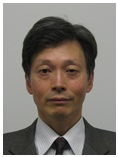 Kenji Okamura joined Japan’s Ministry of Finance (MOF) in 1985, and has worked
on economic and financial policy planning in such areas as budget, taxation, and
international finance. He worked as an economist in the Asian Department of the
International Monetary Fund (IMF) during 1993-96. In 2008-13, he served as heads
of relevant divisions of the International Bureau of the MOF, and tackled key policy
issues in the Global Financial Crisis era, including strengthening functions and
resources of the IMF and the Japan Bank of International Cooperation (JBIC). He
was also in charge of the ODA budgeting and human resource management of the international
wing of the MOF.
Kenji Okamura joined Japan’s Ministry of Finance (MOF) in 1985, and has worked
on economic and financial policy planning in such areas as budget, taxation, and
international finance. He worked as an economist in the Asian Department of the
International Monetary Fund (IMF) during 1993-96. In 2008-13, he served as heads
of relevant divisions of the International Bureau of the MOF, and tackled key policy
issues in the Global Financial Crisis era, including strengthening functions and
resources of the IMF and the Japan Bank of International Cooperation (JBIC). He
was also in charge of the ODA budgeting and human resource management of the international
wing of the MOF.
In June 2013, he was appointed Deputy Commissioner for International Affairs of
the Financial Services Agency and represents Japan in various fora of the international
finance field. He serves as Vice-chair of the Corporate Governance Committee of
the OECD, and as a Governing Council member of the International Financial Consumer
Protection Organization. He also focuses on promoting financial cooperation with
Asian countries, including developing financial infrastructures, to serve Japan’s
Growth Strategy target of “growing together with Asia.â€
He is a graduate of the University of Tokyo, and earned Master of Public Policy
in 1989 from John F. Kennedy School of Government at Harvard University.
-
Yunsung Tark, Director of International Finance Division
of the Korea Financial Services Commission
-
 Yunsung Tark was appointed as Director of International Finance
Division of the Korea Financial Services Commission in January 2014.
Yunsung Tark was appointed as Director of International Finance
Division of the Korea Financial Services Commission in January 2014.
He has been with the government since 1996, serving in various posts. In his capacity
as Director of International Finance Division, he is leading endeavors to strengthen
cooperation with overseas financial authorities and supporting domestic financial
institutions to expand business in foreign markets. He also led the Planning and
Administration Office of the Korea FIU on performing duties relating to AML-CFT.
Before serving in this post, he was the head of the Proceeding•Steering•Information
Team, in charge of digitization of administration, agenda for the Financial Services
Commission and Securities and Futures Commission, and organizing meetings.
He was seconded to the UNCTAD from August 2007 to February 2008. Beforehand, he
served in the Banking Division of the Financial Policy Bureau of the Ministry of
Finance and Economy.
Mr. Tark was born on September 15, 1969 and graduated from Seoul National University
in 1996 with a bachelor’s degree in Economics. He completed MBA program from UCLA
Anderson School of Management.
|
|
4:15 - 5:30 p.m.
|
Roundtable – Navigating the Future of Asian Finance
-
Moderator: HE Dong, Executive Director (Research),
Hong Kong Monetary Authority
-
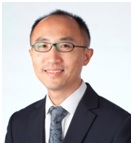 Mr. HE Dong is Executive Director (Research) at the Hong Kong Monetary Authority
(HKMA), responsible for managing the Research Department and for directing research
and policy advice on issues relating to the maintenance of macroeconomic and financial
stability, and the development of financial markets. He is also Director of the
Hong Kong Institute for Monetary Research, responsible for leading the Institute’s
research activities.
Mr. HE Dong is Executive Director (Research) at the Hong Kong Monetary Authority
(HKMA), responsible for managing the Research Department and for directing research
and policy advice on issues relating to the maintenance of macroeconomic and financial
stability, and the development of financial markets. He is also Director of the
Hong Kong Institute for Monetary Research, responsible for leading the Institute’s
research activities.
Prior to joining the HKMA in August 2004, Mr. He was a staff member of the International
Monetary Fund during 1998-2004 and a staff member of the World Bank during 1993-1998.
He had wide-ranging experience working with member countries in policy consultation,
loan negotiation, and technical assistance.
Mr. He holds a doctorate in economics from the University of Cambridge, and has
published extensive works on macroeconomic and financial market issues relating
to Hong Kong, Mainland China and other emerging market economies.
-
Speakers: Iwan Azis, Asian Development Bank and Cornell
University
-
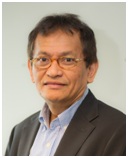 Mr. Azis has been teaching at Cornell University since 1992. He was also Director
of Graduate Study at the Regional Science Program and adjunct professor at the Johnson
Graduate School of Management before he took a leave to head the Asian Development
Bank’s Office of Regional Economic Integration (OREI). In early 1998, he spoke
before the Joint Economic Committee (JEC) of the US Congress on the Asian Crisis.
He received an award for “Distinguished Scholar in Regional Science, Financial
Economics, and Economic Modeling,†in July 2006. His main research interest is
on macro-financial economics and regional economic modeling and institutions. He
has conducted research and consulting work for various international organizations,
governments and universities, and published numerous books and articles on current
development issues.
Mr. Azis has been teaching at Cornell University since 1992. He was also Director
of Graduate Study at the Regional Science Program and adjunct professor at the Johnson
Graduate School of Management before he took a leave to head the Asian Development
Bank’s Office of Regional Economic Integration (OREI). In early 1998, he spoke
before the Joint Economic Committee (JEC) of the US Congress on the Asian Crisis.
He received an award for “Distinguished Scholar in Regional Science, Financial
Economics, and Economic Modeling,†in July 2006. His main research interest is
on macro-financial economics and regional economic modeling and institutions. He
has conducted research and consulting work for various international organizations,
governments and universities, and published numerous books and articles on current
development issues.
Mr. Azis obtained his Bachelor in economics from the University of Indonesia (1976);
Ph.D (1982) and Master’s degree (1981) in Regional Science and Economics from
Cornell University.
-
Andrew Sheng, President Fung Global Institute
-
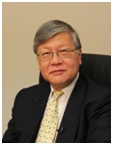 Andrew Sheng is well known in global financial circles as a former central banker
and financial regulator in Asia and a commentator on global finance. As the Institute’s
President, Andrew is responsible for its operations and, with the support and advice
of the Academic Council, for driving its research agenda and thought leadership.
He is also the Chief Adviser to the China Banking Regulatory Commission and a Board
Member of Khazanah Nasional Berhad, Malaysia. In addition, he serves as a member
of the International Advisory Council of the China Investment Corporation, the China
Development Bank, the Advisory Council on Shanghai as an International Financial
Centre and the International Council of the Freie University, Berlin. He is also
an Adjunct Professor at the Graduate School of Economics and Management, Tsinghua
University, Beijing and the University of Malaya, Kuala Lumpur. In 2009, he became
the Pro-Chancellor of Universiti Tun Abdul Razak. Andrew served as Chairman of the
Securities and Futures Commission of Hong Kong from 1998 to 2005, having previously
been a central banker with the Hong Kong Monetary Authority and Bank Negara Malaysia.
He also worked with the World Bank from 1989 to 1993. From 2003 to 2005, he chaired
the Technical Committee of the International Organisation of Securities Commissions
(IOSCO). He has published widely on monetary, economics and financial issues. His
most recent book is entitled From Asian to global financial crisis: an Asian regulator's
view of unfettered finance in the 1990s and 2000s. He is also a regular contributor
to leading economic magazines and newspapers in China and the Asian region. A chartered
accountant by training, he has a BSc in Economics and an Honorary Doctorate from
the University of Bristol. In April 2013, Andrew was named by TIME magazine as one
of the 100 most influential people in the world.
Andrew Sheng is well known in global financial circles as a former central banker
and financial regulator in Asia and a commentator on global finance. As the Institute’s
President, Andrew is responsible for its operations and, with the support and advice
of the Academic Council, for driving its research agenda and thought leadership.
He is also the Chief Adviser to the China Banking Regulatory Commission and a Board
Member of Khazanah Nasional Berhad, Malaysia. In addition, he serves as a member
of the International Advisory Council of the China Investment Corporation, the China
Development Bank, the Advisory Council on Shanghai as an International Financial
Centre and the International Council of the Freie University, Berlin. He is also
an Adjunct Professor at the Graduate School of Economics and Management, Tsinghua
University, Beijing and the University of Malaya, Kuala Lumpur. In 2009, he became
the Pro-Chancellor of Universiti Tun Abdul Razak. Andrew served as Chairman of the
Securities and Futures Commission of Hong Kong from 1998 to 2005, having previously
been a central banker with the Hong Kong Monetary Authority and Bank Negara Malaysia.
He also worked with the World Bank from 1989 to 1993. From 2003 to 2005, he chaired
the Technical Committee of the International Organisation of Securities Commissions
(IOSCO). He has published widely on monetary, economics and financial issues. His
most recent book is entitled From Asian to global financial crisis: an Asian regulator's
view of unfettered finance in the 1990s and 2000s. He is also a regular contributor
to leading economic magazines and newspapers in China and the Asian region. A chartered
accountant by training, he has a BSc in Economics and an Honorary Doctorate from
the University of Bristol. In April 2013, Andrew was named by TIME magazine as one
of the 100 most influential people in the world.
-
ZHU Min, Deputy Managing Director, IMF
-
 Mr. ZHU Min assumed the position of Deputy Managing Director on July 26, 2011. Previously
he served as Special Advisor to the Managing Director of the International Monetary
Fund from May 3, 2010 to July 25, 2011.
Mr. ZHU Min assumed the position of Deputy Managing Director on July 26, 2011. Previously
he served as Special Advisor to the Managing Director of the International Monetary
Fund from May 3, 2010 to July 25, 2011.
Mr. Zhu, a native of China, was a Deputy Governor of the People’s Bank of China.
He was responsible for international affairs, policy research, and credit information.
Prior to his service at China’s central bank, he held various positions at the
Bank of China where he served as Group Executive Vice president, responsible for
finance and treasury, risk management, internal control, legal and compliance, and
strategy and research. Mr. Zhu also worked at the World Bank and taught economics
at both Johns Hopkins University and Fudan University.
Mr. Zhu received a Ph.D and an M.A. in economics from Johns Hopkins University,
an M.P.A. from the Woodrow Wilson School of Public and International Affairs at
Princeton University, and a B.A. in economics from Fudan University.
|
|
5:30 p.m.
|
Close
|




 Norman Chan was appointed Chief Executive of the Hong Kong Monetary
Authority (HKMA) on 1 October 2009. Mr Chan joined the Hong Kong Government as an
Administrative Officer in 1976 and became Deputy Director (Monetary Management)
of the Office of the Exchange Fund in 1991. He was appointed an Executive Director
of the HKMA when it was established in 1993. From 1996 to 2005, Mr Chan served as
Deputy Chief Executive of the HKMA. During his 12 years with the HKMA, Mr Chan steered
a number of major financial policies and initiatives, including the development
of Hong Kong's financial infrastructure, the introduction of renminbi banking services
in Hong Kong and the financial co-operation among central banks in the Asian region.
He played a key role in the Government market operations in 1998 that helped maintain
the stability of Hong Kong's financial system.
Norman Chan was appointed Chief Executive of the Hong Kong Monetary
Authority (HKMA) on 1 October 2009. Mr Chan joined the Hong Kong Government as an
Administrative Officer in 1976 and became Deputy Director (Monetary Management)
of the Office of the Exchange Fund in 1991. He was appointed an Executive Director
of the HKMA when it was established in 1993. From 1996 to 2005, Mr Chan served as
Deputy Chief Executive of the HKMA. During his 12 years with the HKMA, Mr Chan steered
a number of major financial policies and initiatives, including the development
of Hong Kong's financial infrastructure, the introduction of renminbi banking services
in Hong Kong and the financial co-operation among central banks in the Asian region.
He played a key role in the Government market operations in 1998 that helped maintain
the stability of Hong Kong's financial system.
 Mr. ZHU Min assumed the position of Deputy Managing Director on July 26, 2011. Previously
he served as Special Advisor to the Managing Director of the International Monetary
Fund from May 3, 2010 to July 25, 2011.
Mr. ZHU Min assumed the position of Deputy Managing Director on July 26, 2011. Previously
he served as Special Advisor to the Managing Director of the International Monetary
Fund from May 3, 2010 to July 25, 2011. Chikahisa Sumiis currently Assistant Director of the Asia and Pacific
Department of the International Monetary Fund. He returned to the IMF in 2012 after
20 + years of public service in Japan, having worked in key positions in the areas
of macroeconomic policy coordination, management and budget, tax policies, public
finance, debt management, and financial services regulation, including G20 discussions
on international financial regulatory reform. Prior to returning to the IMF, Mr.
Sumi was Deputy Vice Minister of Finance for International Affairs of Japan.
Chikahisa Sumiis currently Assistant Director of the Asia and Pacific
Department of the International Monetary Fund. He returned to the IMF in 2012 after
20 + years of public service in Japan, having worked in key positions in the areas
of macroeconomic policy coordination, management and budget, tax policies, public
finance, debt management, and financial services regulation, including G20 discussions
on international financial regulatory reform. Prior to returning to the IMF, Mr.
Sumi was Deputy Vice Minister of Finance for International Affairs of Japan.
 Mr. HE Guangbei, is the Vice Chairman and the Chief Executive of
Bank of China (Hong Kong) Limited, and also Chairman of Nanyang Commercial Bank
(China) Limited, Chiyu Banking Corporation Limited, BOC Life and BOCHK Charitable
Foundation. He is a Director of Hong Kong Interbank Clearing Limited, HKICL Services
Limited, and Hong Kong Note Printing Limited. He served as the Chairman of the Hong
Kong Association of Banks in 2005, 2008, 2011 and is the current Chairman for 2014;
the other public positions held include: member of 12th National Committee of the
Chinese People’s Political Consultative Conference, non-official member of Economic
Development Commission, member of the HKMA Exchange Fund Advisory Committee, member
of the Banking Advisory Committee, member of General Committee of Hong Kong General
Chamber of Commerce, member of Hong Kong-United States Business Council, member
of Advisory Committee of Qianhai Shenzhen-Hong Kong Modern Service Industry Corporation
Zone, and Council Member of the Trade Development Council.
Mr. HE Guangbei, is the Vice Chairman and the Chief Executive of
Bank of China (Hong Kong) Limited, and also Chairman of Nanyang Commercial Bank
(China) Limited, Chiyu Banking Corporation Limited, BOC Life and BOCHK Charitable
Foundation. He is a Director of Hong Kong Interbank Clearing Limited, HKICL Services
Limited, and Hong Kong Note Printing Limited. He served as the Chairman of the Hong
Kong Association of Banks in 2005, 2008, 2011 and is the current Chairman for 2014;
the other public positions held include: member of 12th National Committee of the
Chinese People’s Political Consultative Conference, non-official member of Economic
Development Commission, member of the HKMA Exchange Fund Advisory Committee, member
of the Banking Advisory Committee, member of General Committee of Hong Kong General
Chamber of Commerce, member of Hong Kong-United States Business Council, member
of Advisory Committee of Qianhai Shenzhen-Hong Kong Modern Service Industry Corporation
Zone, and Council Member of the Trade Development Council. Mr. Hidekazu HORIKOSHI, joined The Bank of Tokyo, Ltd. (now become
The Bank of Tokyo-Mitsubishi UFJ, Ltd. (BTMU) after several mergers in a decade
completed in 2006) in 1984 and has more than 29 years of experience in banking,
mainly lies in corporate and strategic planning development and global banking activities.
Mr. Hidekazu HORIKOSHI, joined The Bank of Tokyo, Ltd. (now become
The Bank of Tokyo-Mitsubishi UFJ, Ltd. (BTMU) after several mergers in a decade
completed in 2006) in 1984 and has more than 29 years of experience in banking,
mainly lies in corporate and strategic planning development and global banking activities. Frank Packer is the Head of Economics and Financial Markets at the Representative
Office for Asia and the Pacific, Bank for International Settlements (BIS). His responsibilities
include the oversight of economic research conducted by the BIS' Asian office, as
well as meetings and conferences organised by the BIS with central bank shareholders
in the region. Prior to his reassignment to the Asia Representative Office in 2009,
Frank was the head of Financial Markets in the Research and Policy Analysis group
of the Monetary and Economic Department at the BIS' head office in Basel, and was
also editor of the Bank’s Quarterly Review of International Banking and Financial
Market Developments. Prior to joining the BIS in 2003, Frank had worked for the
Federal Reserve Bank of New York and Nikko Citigroup in Tokyo. He has a Ph.D. in
finance and economics from Columbia University; an MBA from the University of Chicago,
and a BA in History and Economics from Harvard.
Frank Packer is the Head of Economics and Financial Markets at the Representative
Office for Asia and the Pacific, Bank for International Settlements (BIS). His responsibilities
include the oversight of economic research conducted by the BIS' Asian office, as
well as meetings and conferences organised by the BIS with central bank shareholders
in the region. Prior to his reassignment to the Asia Representative Office in 2009,
Frank was the head of Financial Markets in the Research and Policy Analysis group
of the Monetary and Economic Department at the BIS' head office in Basel, and was
also editor of the Bank’s Quarterly Review of International Banking and Financial
Market Developments. Prior to joining the BIS in 2003, Frank had worked for the
Federal Reserve Bank of New York and Nikko Citigroup in Tokyo. He has a Ph.D. in
finance and economics from Columbia University; an MBA from the University of Chicago,
and a BA in History and Economics from Harvard. Rebecca Terner focuses primarily on global initiatives for the Asia Securities Industry
& Financial Markets Association (ASIFMA), including the global Legal Entity
Identifier (LEI), shadow banking and recovery and resolution planning. Her responsibilities
include providing Asian regulators, market supervisors, industry participants and
regional trade associations with regular updates on the global regulatory reform
agenda and its potential impacts on markets in Asia. In addition, she coordinates
ASIFMA initiatives and committees covering the ASEAN region and liaises regularly
with representatives of ASEAN+3, APEC-ABAC, the US Treasury, the Asian Bond Market
Forum Secretariat, the Asian Development Bank, Securities Market Practice Group
(SMPG), regulators, exchanges, financial market supervisors, and associations throughout
the Asia-Pacific region. Rebecca is an industry representative on the Financial
Stability Board's PSPG.
Rebecca Terner focuses primarily on global initiatives for the Asia Securities Industry
& Financial Markets Association (ASIFMA), including the global Legal Entity
Identifier (LEI), shadow banking and recovery and resolution planning. Her responsibilities
include providing Asian regulators, market supervisors, industry participants and
regional trade associations with regular updates on the global regulatory reform
agenda and its potential impacts on markets in Asia. In addition, she coordinates
ASIFMA initiatives and committees covering the ASEAN region and liaises regularly
with representatives of ASEAN+3, APEC-ABAC, the US Treasury, the Asian Bond Market
Forum Secretariat, the Asian Development Bank, Securities Market Practice Group
(SMPG), regulators, exchanges, financial market supervisors, and associations throughout
the Asia-Pacific region. Rebecca is an industry representative on the Financial
Stability Board's PSPG. Mr. Jerald Schiff is the IMF’s Mission Chief to Japan. He joined the Fund in 1989
and worked in various departments, including the Western Hemisphere Department,
the European Department, and the Fiscal Affairs Department before moving to the
Asia and Pacific Department in 2004. He led missions to India and Korea during his
assignment in the Asia and Pacific Department. From 2009-11, he was a Senior Advisor
at the office of Managing Director (OMD). Mr. Schiff is a national of the United
States and received his A.B. at Cornell University and a M.S. and Ph.D. at University
of Wisconsin. Before joining the Fund, he has taught at the Tulane University as
Assistant Professor and worked in the U.S. Department of Treasury.
Mr. Jerald Schiff is the IMF’s Mission Chief to Japan. He joined the Fund in 1989
and worked in various departments, including the Western Hemisphere Department,
the European Department, and the Fiscal Affairs Department before moving to the
Asia and Pacific Department in 2004. He led missions to India and Korea during his
assignment in the Asia and Pacific Department. From 2009-11, he was a Senior Advisor
at the office of Managing Director (OMD). Mr. Schiff is a national of the United
States and received his A.B. at Cornell University and a M.S. and Ph.D. at University
of Wisconsin. Before joining the Fund, he has taught at the Tulane University as
Assistant Professor and worked in the U.S. Department of Treasury. Ratna Sahay is Deputy Director of the Monetary and Capital Markets Department at
the International Monetary Fund (IMF). She is responsible for setting strategic
priorities for the department, leading key policy papers and projects, and coordinating
the work and resource management of the department. She has previously worked in
the Research, Finance, Asian, European, Middle East, and Western Hemisphere Departments
at the IMF, leading key analytical and policy projects as well as several missions
to emerging market countries.
Ratna Sahay is Deputy Director of the Monetary and Capital Markets Department at
the International Monetary Fund (IMF). She is responsible for setting strategic
priorities for the department, leading key policy papers and projects, and coordinating
the work and resource management of the department. She has previously worked in
the Research, Finance, Asian, European, Middle East, and Western Hemisphere Departments
at the IMF, leading key analytical and policy projects as well as several missions
to emerging market countries.
 Dr. LI Bo joined the PBOC in 2004, working in the Legal and Regulation Department
before joining the Monetary Policy Department II in 2009. Prior to joining the PBOC,
Mr. Li was a practicing attorney with the New York law firm of Davis Polk &
Wardwell. Mr. Li holds a Ph.D. degree in economics from Stanford University and
a J.D. magna cum laude from Harvard Law School. He is a member of the Chinese and
New York Bar.
Dr. LI Bo joined the PBOC in 2004, working in the Legal and Regulation Department
before joining the Monetary Policy Department II in 2009. Prior to joining the PBOC,
Mr. Li was a practicing attorney with the New York law firm of Davis Polk &
Wardwell. Mr. Li holds a Ph.D. degree in economics from Stanford University and
a J.D. magna cum laude from Harvard Law School. He is a member of the Chinese and
New York Bar. Mr. Kazuo Momma is the Assistant Governor of the Bank of Japan.
He received a B.A. in Economics from University of Tokyo, and a MBA from Wharton
School. He joined the Bank in 1981. He became Head of Policy Studies Division at
Policy Planning Office (present Monetary Affairs Department) in April 2000, and
in March 2003, Head of Economic Research Division at the Research and Statistics
Department. In July 2006, he was promoted to Deputy Director-General at the Financial
System and Bank Examination Department. He became Director-General of the Research
and Statistics Department in 2007 and Director-General of Monetary Affairs Department
in 2011. He has served as Executive Director since May 2012. On March 2013, he was
appointed Assistant Governor, responsible for the Bank's international affairs.
Mr. Kazuo Momma is the Assistant Governor of the Bank of Japan.
He received a B.A. in Economics from University of Tokyo, and a MBA from Wharton
School. He joined the Bank in 1981. He became Head of Policy Studies Division at
Policy Planning Office (present Monetary Affairs Department) in April 2000, and
in March 2003, Head of Economic Research Division at the Research and Statistics
Department. In July 2006, he was promoted to Deputy Director-General at the Financial
System and Bank Examination Department. He became Director-General of the Research
and Statistics Department in 2007 and Director-General of Monetary Affairs Department
in 2011. He has served as Executive Director since May 2012. On March 2013, he was
appointed Assistant Governor, responsible for the Bank's international affairs.
 José Viñals is currently the Financial Counsellor and Director
of the Monetary and Capital Markets Department of the International Monetary Fund
(IMF). He represents the IMF at the Financial Stability Board. He holds a Bachelor's
degree in Economics from the University of Valencia; a Master’s degree in Economics
from the London School of Economics; and Master's and Doctoral (Ph.D.) degrees in
Economics from Harvard University. He is a former Faculty Member of the Economics
Department at Stanford University.
José Viñals is currently the Financial Counsellor and Director
of the Monetary and Capital Markets Department of the International Monetary Fund
(IMF). He represents the IMF at the Financial Stability Board. He holds a Bachelor's
degree in Economics from the University of Valencia; a Master’s degree in Economics
from the London School of Economics; and Master's and Doctoral (Ph.D.) degrees in
Economics from Harvard University. He is a former Faculty Member of the Economics
Department at Stanford University. Mr. Gilbert Kohnke was appointed Executive Vice President and Head of Group Risk
Management in September 2005. As Chief Risk Officer, he covers the full spectrum
of risk, including Credit, Information Security, Liquidity, Market and Operational
risk management. Jointly reporting to both the Chief Executive Officer and the Board
Risk Management Committee of OCBC Bank, he has been leading the change in redefining
the risk management approaches used by OCBC Bank in a Basel II and post Global Financial
Crisis Basel III world. He has over 25 years of banking experience. Prior to joining
OCBC Bank, he was Head of Risk Management for Asia at Canadian Imperial Bank of
Commerce (CIBC), and subsequently, Head of European Portfolio Management of CIBC
based in London. He holds a Bachelor of Arts in Economics from the University of
Western Ontario, a Bachelor of Commerce in Accounting from the University of Windsor,
Ontario and a Master of Business Administration from the University of Hawaii. Age
55.
Mr. Gilbert Kohnke was appointed Executive Vice President and Head of Group Risk
Management in September 2005. As Chief Risk Officer, he covers the full spectrum
of risk, including Credit, Information Security, Liquidity, Market and Operational
risk management. Jointly reporting to both the Chief Executive Officer and the Board
Risk Management Committee of OCBC Bank, he has been leading the change in redefining
the risk management approaches used by OCBC Bank in a Basel II and post Global Financial
Crisis Basel III world. He has over 25 years of banking experience. Prior to joining
OCBC Bank, he was Head of Risk Management for Asia at Canadian Imperial Bank of
Commerce (CIBC), and subsequently, Head of European Portfolio Management of CIBC
based in London. He holds a Bachelor of Arts in Economics from the University of
Western Ontario, a Bachelor of Commerce in Accounting from the University of Windsor,
Ontario and a Master of Business Administration from the University of Hawaii. Age
55. Kenji Okamura joined Japan’s Ministry of Finance (MOF) in 1985, and has worked
on economic and financial policy planning in such areas as budget, taxation, and
international finance. He worked as an economist in the Asian Department of the
International Monetary Fund (IMF) during 1993-96. In 2008-13, he served as heads
of relevant divisions of the International Bureau of the MOF, and tackled key policy
issues in the Global Financial Crisis era, including strengthening functions and
resources of the IMF and the Japan Bank of International Cooperation (JBIC). He
was also in charge of the ODA budgeting and human resource management of the international
wing of the MOF.
Kenji Okamura joined Japan’s Ministry of Finance (MOF) in 1985, and has worked
on economic and financial policy planning in such areas as budget, taxation, and
international finance. He worked as an economist in the Asian Department of the
International Monetary Fund (IMF) during 1993-96. In 2008-13, he served as heads
of relevant divisions of the International Bureau of the MOF, and tackled key policy
issues in the Global Financial Crisis era, including strengthening functions and
resources of the IMF and the Japan Bank of International Cooperation (JBIC). He
was also in charge of the ODA budgeting and human resource management of the international
wing of the MOF.
 Yunsung Tark was appointed as Director of International Finance
Division of the Korea Financial Services Commission in January 2014.
Yunsung Tark was appointed as Director of International Finance
Division of the Korea Financial Services Commission in January 2014. Mr. HE Dong is Executive Director (Research) at the Hong Kong Monetary Authority
(HKMA), responsible for managing the Research Department and for directing research
and policy advice on issues relating to the maintenance of macroeconomic and financial
stability, and the development of financial markets. He is also Director of the
Hong Kong Institute for Monetary Research, responsible for leading the Institute’s
research activities.
Mr. HE Dong is Executive Director (Research) at the Hong Kong Monetary Authority
(HKMA), responsible for managing the Research Department and for directing research
and policy advice on issues relating to the maintenance of macroeconomic and financial
stability, and the development of financial markets. He is also Director of the
Hong Kong Institute for Monetary Research, responsible for leading the Institute’s
research activities.
 Mr. Azis has been teaching at Cornell University since 1992. He was also Director
of Graduate Study at the Regional Science Program and adjunct professor at the Johnson
Graduate School of Management before he took a leave to head the Asian Development
Bank’s Office of Regional Economic Integration (OREI). In early 1998, he spoke
before the Joint Economic Committee (JEC) of the US Congress on the Asian Crisis.
He received an award for “Distinguished Scholar in Regional Science, Financial
Economics, and Economic Modeling,†in July 2006. His main research interest is
on macro-financial economics and regional economic modeling and institutions. He
has conducted research and consulting work for various international organizations,
governments and universities, and published numerous books and articles on current
development issues.
Mr. Azis has been teaching at Cornell University since 1992. He was also Director
of Graduate Study at the Regional Science Program and adjunct professor at the Johnson
Graduate School of Management before he took a leave to head the Asian Development
Bank’s Office of Regional Economic Integration (OREI). In early 1998, he spoke
before the Joint Economic Committee (JEC) of the US Congress on the Asian Crisis.
He received an award for “Distinguished Scholar in Regional Science, Financial
Economics, and Economic Modeling,†in July 2006. His main research interest is
on macro-financial economics and regional economic modeling and institutions. He
has conducted research and consulting work for various international organizations,
governments and universities, and published numerous books and articles on current
development issues. Andrew Sheng is well known in global financial circles as a former central banker
and financial regulator in Asia and a commentator on global finance. As the Institute’s
President, Andrew is responsible for its operations and, with the support and advice
of the Academic Council, for driving its research agenda and thought leadership.
He is also the Chief Adviser to the China Banking Regulatory Commission and a Board
Member of Khazanah Nasional Berhad, Malaysia. In addition, he serves as a member
of the International Advisory Council of the China Investment Corporation, the China
Development Bank, the Advisory Council on Shanghai as an International Financial
Centre and the International Council of the Freie University, Berlin. He is also
an Adjunct Professor at the Graduate School of Economics and Management, Tsinghua
University, Beijing and the University of Malaya, Kuala Lumpur. In 2009, he became
the Pro-Chancellor of Universiti Tun Abdul Razak. Andrew served as Chairman of the
Securities and Futures Commission of Hong Kong from 1998 to 2005, having previously
been a central banker with the Hong Kong Monetary Authority and Bank Negara Malaysia.
He also worked with the World Bank from 1989 to 1993. From 2003 to 2005, he chaired
the Technical Committee of the International Organisation of Securities Commissions
(IOSCO). He has published widely on monetary, economics and financial issues. His
most recent book is entitled From Asian to global financial crisis: an Asian regulator's
view of unfettered finance in the 1990s and 2000s. He is also a regular contributor
to leading economic magazines and newspapers in China and the Asian region. A chartered
accountant by training, he has a BSc in Economics and an Honorary Doctorate from
the University of Bristol. In April 2013, Andrew was named by TIME magazine as one
of the 100 most influential people in the world.
Andrew Sheng is well known in global financial circles as a former central banker
and financial regulator in Asia and a commentator on global finance. As the Institute’s
President, Andrew is responsible for its operations and, with the support and advice
of the Academic Council, for driving its research agenda and thought leadership.
He is also the Chief Adviser to the China Banking Regulatory Commission and a Board
Member of Khazanah Nasional Berhad, Malaysia. In addition, he serves as a member
of the International Advisory Council of the China Investment Corporation, the China
Development Bank, the Advisory Council on Shanghai as an International Financial
Centre and the International Council of the Freie University, Berlin. He is also
an Adjunct Professor at the Graduate School of Economics and Management, Tsinghua
University, Beijing and the University of Malaya, Kuala Lumpur. In 2009, he became
the Pro-Chancellor of Universiti Tun Abdul Razak. Andrew served as Chairman of the
Securities and Futures Commission of Hong Kong from 1998 to 2005, having previously
been a central banker with the Hong Kong Monetary Authority and Bank Negara Malaysia.
He also worked with the World Bank from 1989 to 1993. From 2003 to 2005, he chaired
the Technical Committee of the International Organisation of Securities Commissions
(IOSCO). He has published widely on monetary, economics and financial issues. His
most recent book is entitled From Asian to global financial crisis: an Asian regulator's
view of unfettered finance in the 1990s and 2000s. He is also a regular contributor
to leading economic magazines and newspapers in China and the Asian region. A chartered
accountant by training, he has a BSc in Economics and an Honorary Doctorate from
the University of Bristol. In April 2013, Andrew was named by TIME magazine as one
of the 100 most influential people in the world.